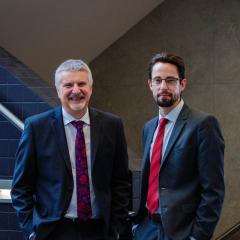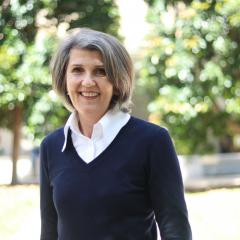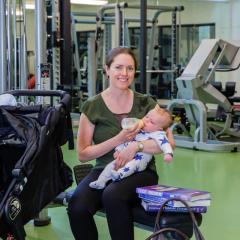The Brisbane Broncos are known to have big appetites, but they’ll be paying special attention to what they eat after announcing a scholarship for their own nutritional advisor.
The three-and-a-half-year scholarship worth $112,000 is funding a doctoral student from The University of Queensland’s School of Human Movement and Nutrition Sciences to research and improve the teams’ diet.
It’s one of the latest developments of the landmark partnership announced in April 2015, joining the most successful Australian rugby league club of the past 30 years and one of Australia’s top-ranked universities.
Senior Lecturer in Nutrition and Dietetics Dr Michael Leveritt, who previously worked for the Australian Institute of Sport and Queensland Academy of Sport, said nutrition was vital for athlete development.
“Implementing and evaluating nutrition interventions are keys to the discovery of improved practices that can enhance on-field performances,” Dr Leveritt said.
“The Brisbane Broncos are leaders when it comes to the science of rugby league and this investment will help keep them at the forefront.”
PhD candidate Mr Dean Paningbatan was the first student awarded the scholarship.
He is one of many UQ Human Movement and Nutrition Sciences students working side-by-side with Broncos coaching and high-performance staff as they attack the 2016 season.
For the Broncos, NRL grand finalists in 2015, it is just as important to develop a reputation for leading the competition off the field as on it.
UQ School of Human Movement and Nutrition Sciences high performance expert Vince Kelly said there were several other research projects underway with potential impact for the Broncos.
“One interesting study is centred on what we call ‘sleep hygiene’, basically using sleep as a weapon for better performance,” Mr Kelly said.
“Most people are aware that effective sleep helps recovery and tissue repair, so we’re building an education intervention around that, particularly aimed at the Broncos’ younger players.
“It considers everything from how long they should use their mobile phone through to the environment they sleep in.
“In the English Premier League they drill down to what specific type of pillow each player should use, but I don’t know if we will go that far just yet.”
Another UQ-developed tool which is already being utilised by the NRL powerhouse is the Match Difficulty Index.
Proving remarkably accurate, the index predicts the outcome of each game based on a number of factors, including home ground advantage, time between matches, the ranking of both teams and line-up changes.
“It actually becomes more interesting when the team performance does not reflect the prediction of the model,” Mr Kelly said.
“If the model has said you should lose, but you end up winning, can you track that back to something you did in preparation or was it an extraordinary performance by the players?
“Likewise, if you should have won, but in reality you lost, what has gone wrong there that you can identify?”
Mr Kelly said the Match Difficulty Index successfully predicted the Broncos’ round 21 loss to Manly (44-14) in 2015, which took many by surprise at the time.
Other UQ projects underway with rugby league implications include an analysis of developmental pathways and methods of post-match recovery.
One of those students actively involved is PhD candidate Mr Johnpaul Caia, with his work centred around recovery in particular.
“It’s been a fantastic opportunity to combine doctoral research with working alongside staff from an elite sporting organisation,” Mr Caia said.
“We are learning from some of the best when it comes to sports performance.
“I’ve been really impressed by the club in terms of their professionalism and focus and it’s a great environment to learn in.”
Honours student Ms Marni Simpson also worked with the team. She graduated from UQ in December after spending eight months of practical placement with the Broncos.
“I learnt so many skills, particularly around collaboration and communication,” Ms Simpson said.
“Being a Broncos supporter, I had to pinch myself at the chance to benefit from their feedback.”
UQ Vice-Chancellor and President Professor Peter Høj said the partnership recognised existing linkages in teaching and research activities and a desire to strengthen those links.
“The Broncos are synonymous with success – both on the football field and in the business world,” Professor Høj said.
“They have fans right across the state’s regional and rural centres, plus plenty of loyal followers interstate.
“UQ is proud to be associated with the Broncos and we look forward to building a strong partnership that benefits both organisations.”
Broncos CEO Paul White Mr White said UQ and the Broncos shared many values.
“The Broncos are delighted to have an educational partnership with an iconic Queensland organisation such as The University of Queensland,” he said.
“We share many values with UQ and look forward to working with them to tell their wonderful stories across the state through our fans, our match days and our events across Queensland.”
Words: Rob Burgin



